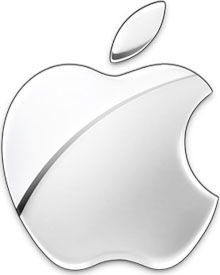- Qualcomm Launches Snapdragon 4 Gen 2 Mobile Platform
- AMD Launches Ryzen PRO 7000 Series Mobile & Desktop Platform
- Intel Launches Sleek Single-Slot Arc Pro A60 Workstation Graphics Card
- NVIDIA Announces Latest Ada Lovelace Additions: GeForce RTX 4060 Ti & RTX 4060
- Maxon Redshift With AMD Radeon GPU Rendering Support Now Available
Apple Wins Patent Case Against HTC
Apple has secured a big win in the courts this week against HTC, with the ruling able to halt imports of HTC phones by the spring of 2012 if the offending patent violation isn’t corrected. The description of the patent is a little broad, but in essence it seems to relate itself to the ability of recognizing text on a screen and then interpreting it in a useful way; eg: a phone number that becomes clickable.
Apple filed this patent in 1996 and in 1999 it was approved. In gist, the patent is described as such, “A system and method causes a computer to detect and perform actions on structures identified in computer data.” Again, this is a rather broad explanation, and given what HTC is doing that Apple’s not happy with, it leaves the door wide open for what’s possible on Apple’s behalf. We’re again witnessing how the patent system is broken – especially where software patents are concerned.

As it’s described at Gizmodo, “When an iPhone receives a message that contains a phone number or an address — e-mail, Web or street — those bits of data are automatically highlighted, underlined and turned into clickable links.” If this sounds like something completely ordinary, that’s because it is. And if the patent is in fact as broad as it appears, then other companies would be at risk as well. Why would Apple suddenly flex its muscles with this particular patent? It’s for the exact same reason Microsoft is doing the same thing – Android is becoming a bigger threat by the day.
In line with the explanation above, it would seem that an e-mail client that takes a plain text URL and turns it into a clickable one would be offending this patent. At the same time, Skype has for years turned phone numbers on webpages into clickable URLs for use with its VoIP software. In fact, prior art exists for products and software going back a couple of decades.
As far as I’m concerned, outright copying a company is one thing, but to be able to patent a normal software function that many people have come to expect is a little absurd. Apple winning this case is not a great thing for consumers, and if something like this can be won, there are sure to be many more wins in the future – and not only from Apple.
Anyone happen to remember a time when we weren’t exposed to software patent stories every single day? Me either.




